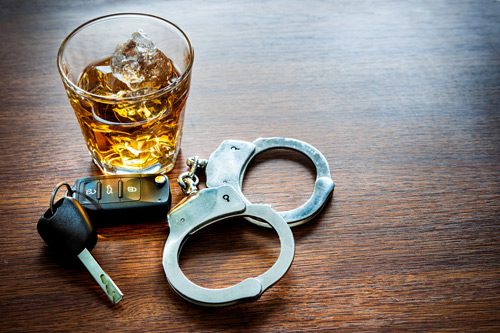
Does a DUI Mean Addiction Treatment Is Necessary?
It’s possible that someone who is arrested for a DUI simply had one moment of poor judgement.
However, drinking in situations that put yourself or others at risk is one widely recognized sign of an alcohol use disorder. This includes drunk driving as well as mixing alcohol with medications against your doctor’s orders or using alcohol while operating heavy machinery.
Other potential signs of an alcohol use disorder include:
- You use alcohol to relax or de-stress.
- You neglect obligations related to work, family, and friends to spend more time drinking.
- You experience cravings for alcohol.
- You experience withdrawal symptoms such as nausea, headaches, tremors, or anxiety when you are unable to drink.
- You lie to others or become defensive when asked about your drinking habits.
- You often drink alone.
- You don’t feel “normal” unless you’re drinking.
- You frequently black out or forget about things that have happened while you were drinking.
- You’ve tried to cut back on drinking before but found it impossible to regulate your alcohol consumption.
The more signs of an alcohol use disorder someone shows, the more likely it is that they need to seek addiction treatment.
Is Getting a DUI a “Rock Bottom” Moment?
It’s a common misconception that people struggling with substance abuse need to hit “rock bottom” before seeking treatment. The problem with this way of thinking is that the definition of “rock bottom” varies for each individual and can change as an addiction progresses.
An individual who is charged with a DUI may be spurred to seek treatment if a suspended driver’s license will cause them to lose the job that they love. Or, they may believe it’s not a big deal as long as they didn’t cause an accident that hurt anyone.
Regardless of whether you view your DUI arrest as a “rock bottom” moment, it’s a sign that your drinking behavior deserves a closer look.
Is Rehab an Alternative to Jail?
Every case is unique, so it’s impossible to give specific legal advice. However, some judges will allow people who have been charged with a DUI to seek addiction treatment instead of serving jail time. And, even if this is not the case, choosing to go to rehab voluntarily shows that an individual recognizes they have a problem and wants to demonstrate accountability for their actions. This may inspire a more lenient sentence.
Since a DUI can involve jail time, hefty fines, license suspension, and a criminal record that can affect future employment opportunities, it’s best to consult with an experienced DUI attorney to learn how to handle your case.
How Is Alcohol Addiction Treated?
Every person is different, so treatment plans for people with alcohol use disorders must be personalized. When you seek treatment at Mountain Laurel Recovery Center’s Pennsylvania drug and alcohol addiction treatment program, you’ll receive an in-depth individual assessment to determine the severity of your alcohol use disorder and identify any specific treatment challenges you are facing.
Some of the specific forms of care that may be recommended include:
- Medically managed detox to safely rid the body of alcohol and manage withdrawal symptoms
- Individual counseling to promote the development of coping mechanisms that are critical to a sober lifestyle
- Group counseling to learn from the experiences of others who are facing similar issues
- Nutritional support to repair some of the past damage caused by substance abuse
- Participation in Alcoholics Anonymous or other self-help groups
- Medication-assisted treatment to reduce cravings and promote abstinence
- Treatment for co-occurring mental health disorders such as anxiety or depression
- Holistic treatments such as yoga, meditation, and art or music therapy to promote the development of a wellness-focused lifestyle
Since addiction is considered a chronic illness, residential treatment is part of a larger continuum of care that may include extended care, outpatient counseling, sponsorship support, and other resources designed to ease the transition back to independent living.
At Mountain Laurel Recovery Center, we believe recovery is possible for anyone who desires it. No matter what challenges you’ve faced in the past, we’re committed to helping you develop the skills you need to enjoy a happy, healthy, and productive life free from the destructive behaviors associated with addiction.
